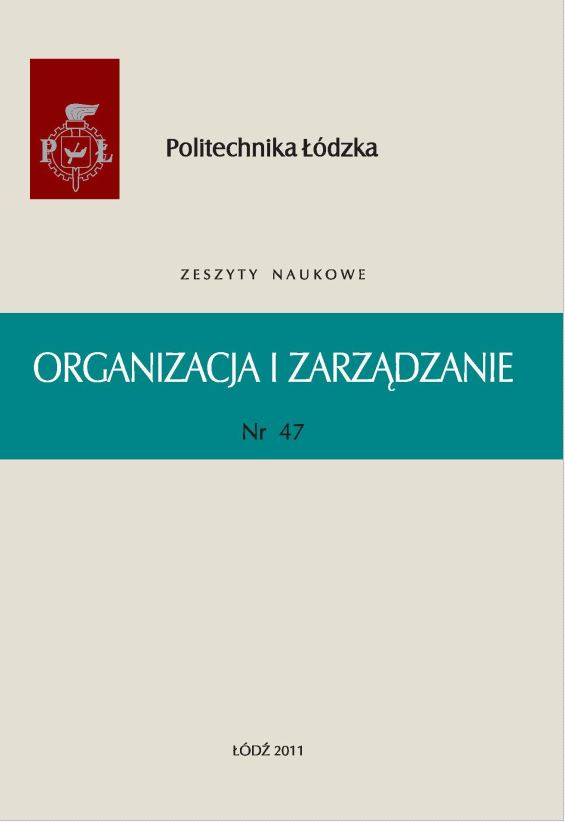Abstract
Any Polish citizen have a right to set up its own business in the European Union. The process of starting a new firm or the creation of its subsidiary abroad depends on the legal regulations governed by the EU directives as well as national legally binding requirements and administrative procedures where the business is to be run. From the perspective of an entrepreneur it is of the same importance cost-effectiveness and the lack of red-tape. It is in the interest of an entrepreneur to run a business in an area where the current macroeconomic situation enhance firm’s profitability. However, the positive approach of local public administration supporting entrepreneurship initiatives and uncomplicated administrative procedures in relation to the businesses work as well as incentives. In order to present the most preferable conditions for entrepreneurs, the World Bank has worked out an indicator called Ease of Doing Business Index.
Countries all over the world can be ranked in relation to this index. The higher the position obtained by an economy the better the conditions for running the business and the stronger the legal protection of the business.
The aim of this paper is to evaluate the conditions for running an economic activity in Poland compared to other EU member countries. For this reason the Author will present the data regarding the general values of the Ease of Doing Business Index for the EU countries as well as other variables that characterize the starting-up a business in the form of limited liability company in the years 2004-2013. In the next chapter the correlation between selected variables from the World Bank rankings and the number of newly registered companies in Poland will be discussed. Because in the Local Data Bank the latest data available in relation to the national statistics necessary for the completion of correlation analysis are for the year 2011, the time series were created only between the years 2004 and 2011. The data presented in the paper were downloaded from electronic databases provided by the World Bank and Central Statistical Office of Poland.
The conclusion of the paper proves that Poland has significantly moved in the ranking, and is now placed in 55th position, which is quite a success. This confirms that the process of starting up own business in Poland becomes less difficult, procedures are eased and time and cost conditions are improved.
References
Enterprise Europe Network London, London Chamber of Commerce and Industry, Setting up a Business in Europe, December 2010, London, http://www.londonchamber.co.uk/docimages/8148.pdf [pobrano 16.01.2013].
European Commission, Commission Recommendation of 6 May 2003 Concerning the Definition of Micro, Small and Medium-sized Enterprises, 2003/361/EC, „Official Journal of the European Union” L 124, 20 May 2003, http://eur-lex.europa.eu/LexUriServ/LexUriServ.do?uri=OJ:L:2003:124:0036:0041:en:PDF [pobrano 23.01.3012].
European Commission, The new SME definition. User guide and model declaration, Publication Office, Luxembourg 2006, http://ec.europa.eu/enterprise/policies/sme/files/sme_definition/sme_user_guide_en.pdf [pobrano 11.01.2013].
Komisja Europejska, Rozporządzenie Komisji (WE) nr 364/2004 z dnia 25 lutego 2004 r. zmieniające rozporządzenie (WE) nr 70/2001 i rozszerzające jego zakres w celu włączenia pomocy dla badań i rozwoju http://eur-lex.europa.eu/ LexUriServ/LexUriServ.do?uri=DD:08:03:32004R0364:PL:PDF [pobrano 17.01.2013].
Komisja Europejska, Twoja Europa. Twoje Prawa. Prawa i moliwości na jednolitym rynku UE – praktyczny przewodnik dla obywateli i przedsiębiorstw, Urząd Publikacji Unii Europejskiej, Luksemburg, 2012, s. 5. http://ec.europa.eu/internal_market/publications/docs/your-europe-your-rights/your-europe-your-rights_pl.pdf [pobrano 14.01.2013].
Komisja Europejska, Wersja skonsolidowana traktatu o funkcjonowaniu Unii Europejskiej, Dziennik Urzędowy Komisji Europejskiej, 2010/C 83/47, 30.03.2010 http://eur-lex.europa.eu/LexUriServ/LexUriServ.do?uri=OJ:C:2010:083:0047:0200:PL:PDF [pobrano 16.01.2013].
Krzemińska D.: Finanse przedsiębiorstwa, Wydawnictwo Wyszej Szkoły Bankowej, Poznań 2002.
Simon, Herbert A.: Behavioural Economics, The New Palgrave, A Dictionary of Economics, Vol. 1, 1987.
Ustawa z 23 kwietnia 1964 r. – Kodeks Cywilny (Dz. U. Nr 16, poz. 93 z późniejszymi zmianami), Dział 3, art. 551.
Urząd Komitetu Integracji Europejskiej, Traktat ustanawiający Wspólnotę Europejską, tekst skonsolidowany (uwzględniający późniejsze zmiany wprowadzone Traktatem z Nicei), Warszawa 2005, http://archiwum-ukie.polskawue.gov.pl/HLP/files.nsf/0/331B545659A21095C1256FF8003CAAA7/$file/traktatyskonsolidowane.pdf [pobrano 11.02.2013].
Ustawa o swobodzie działalności gospodarczej z 2 lipca 2004, Dz. U. 2004 Nr 173 poz. 1807, Rozdział 1, art. 2.
Ustawa o swobodzie działalności gospodarczej, z 2 lipca 2004 r., Dz. U. 2004 Nr 173 poz. 1807, Rozdział 7, art. 104-109.
World Bank, Doing Business 2013: Smarter Regulations for Small and Medium-Size Enterprises, World Bank Group, Washington DC 2013.
EUR-Lex, http://eur-lex.europa.eu/pl/treaties/index.htm [pobrano 16.01.2013].
Doing Business, http://www.doingbusiness.org/methodology/starting-a-business [pobrano, 17.01.2013].
http://www.doingbusiness.org/methodology/methodology-note [pobrano 18.01.2013].
Wysoko wykwalifikowana kadra szkół zawodowych, http://zasobyip2.ore.edu.pl/pl/publications/download/78 [data pobrania 13.01.2013].

